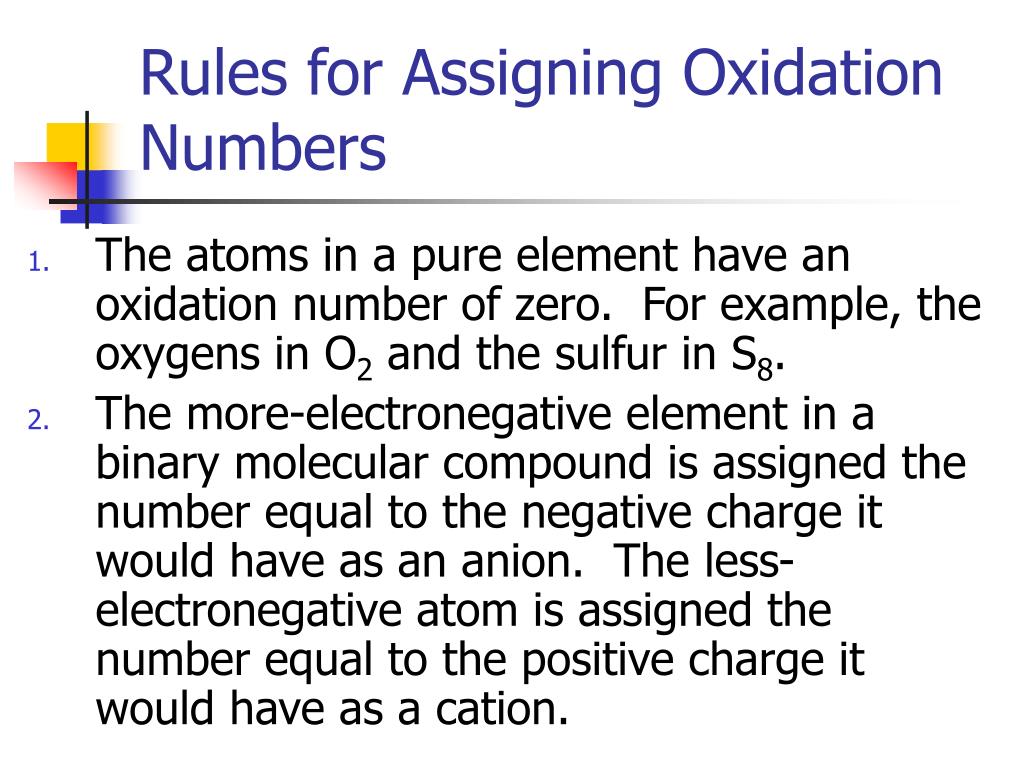
Problem: Find the oxidation state of a carbon atom in C 2H 6. In this case, chlorine has an oxidation state of +1.Īnswer: Hydrogen and chlorine have +1 oxidation state and oxygen has -2 oxidation state. Oxygen is more electronegative than chlorine making it the exception to rule 8. In this case, the chlorine atom is bonded to the oxygen atom. Oxygen has an oxidation state of -2 according to rule 5.Ĭhlorine is a Group VIIA halogen and usually has an oxidation state of -1. Hydrogen has an oxidation state of +1 according to rule 4.

Problem: Assign oxidation states to the atoms in hypochlorous acid or HOCl. According to rule 8, fluorine will have an oxidation of -1.Ĭheck our values using rule 9 since CaF 2 is a neutral molecule:Īnswer: The calcium atom has an oxidation state of +2 and the fluorine atoms have an oxidation state of -1. Group IIA metals have an oxidation of +2.įluorine is a halogen or Group VIIA element and has a higher electronegativity than calcium. Problem: Assign oxidation states to each atom in CaF 2.Ĭalcium is a Group 2 metal. We can check this using rule 9 where the sum of all oxidation states in a neutral molecule is equal to zero.Īnswer: The hydrogen atoms have an oxidation state of +1 and the oxygen atom has an oxidation state of -2. Problem: Assign oxidation states to each atom in H 2OĪccording to rule 5, oxygen atoms typically have an oxidation state of -2.Īccording to rule 4, hydrogen atoms have an oxidation state of +1. The cation is listed first in a formula or compound name.

An oxidation number refer to the quantity of electrons that may be gained or lost by an atom.


 0 kommentar(er)
0 kommentar(er)
